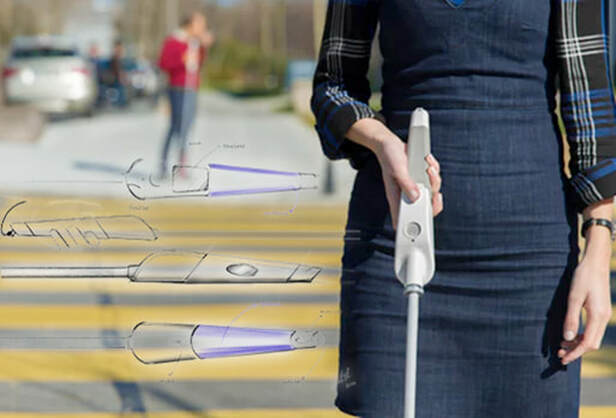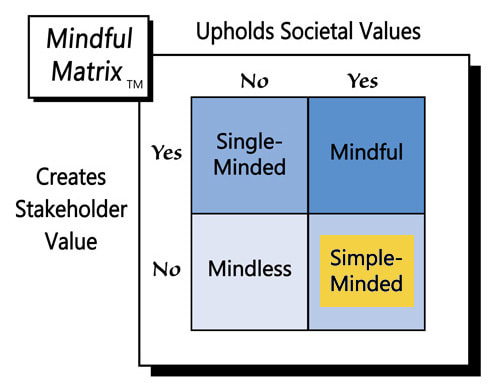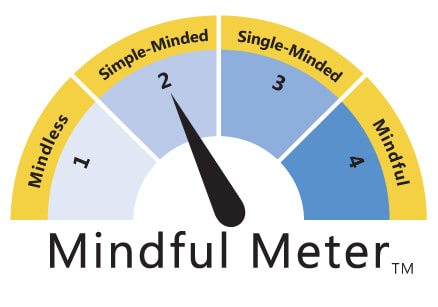A few years ago, members of Turkey’s Young Guru Academy (YGA), a nonprofit organization aimed at assisting disadvantaged members of society, began to develop WeWALK, a smart cane that uses ultrasonic sensors, microphones, and speakers to help individuals with visual impairments “see obstacles.” More specifically, a WeWALK hardware unit attaches to the handle of a blind person's cane, allowing him/her to more easily navigate outdoor environments.
Despite its recent start, the company has rapidly gained a social media following on Facebook, Twitter, and YouTube. The firm also has been featured on CNN International, NowThis, Forbes, Dr. Oz, and certain New York City television outlets.
What features and benefits does WeWALK offer that have spurred its rapid rise? The following list summarizes key parts of the new product’s value proposition:
- vibration and an ultrasonic sensor to detect overhead and chest-level obstacles, such as hanging tree branches and telephone poles
- a compass, accelerometer, and gyroscope for GPS technology and Google Maps integration
- Bluetooth connectivity, to be paired with an iOS or Android smartphone and integration with apps such as Google Maps
- touch controls that allow users to access their smart phone via the device itself, without having to remove the phone from a pocket, purse, or backpack
- a microphone and speaker for voice control and Amazon Alexa integration
- support for Turkish and English languages
- approximately five hours of battery life
- charging via a micro USB port
- weight of 430 grams
- length of approximately one foot
- open platform for app developers to add integrations with the device
- purchase price of $349 through Indiegogo
I applaud the idea and the innovation behind WeWALK and appreciate several of its strengths. For instance, overhead obstacle detection is a feature that I would find helpful. Oftentimes when I go hiking, or even when I am just walking down the sidewalk in a residential area, I never know when I am going to encounter an overhead object like a tree branch or some low-hanging sign.
In addition, the ability to connect to a smartphone via Bluetooth could save time and provide convenience by not having to hold a phone in one hand and a cane in the other. Allowing a free hand is a plus.
However, WeWALK also has some significant limitations. First, it does not attach to all types of canes that blind people use. I personally prefer a light-weight, rigid, National Federation of the Blind white cane with a metal tip, but WeWALK does not currently attach to this type of cane. Most of the canes that the device attaches to are much heavier and bulkier in nature. However, AppleVis does say that the firm has a goal of attaching to every popular cane in the world.
Another concern is how well the product can withstand the elements. Due to it being an outdoor product filled with many electronic components, one must be aware of rain during all seasons, as well as winter snow and summer heat. A useful addition to the product would be a protective case of some sort that would not muffle the sound from the speaker.
Speaking of the speaker, I would be interested in knowing how much volume can be produced. Outdoor environments can be quite noisy, due to traffic, construction, and other noises that may prevent the user from being able to hear its audio feedback while holding the cane at arm’s length.
It’s also worth noting that a five-hour battery life may not be enough to get someone through an entire day of traveling, especially while on vacation or otherwise being a tourist. Maybe this deficiency could be remedied by charging through an extra external battery that the user could carry in his or her backpack or purse. However, that power supplement would mean a rather long cord attaching the battery to the device, as well as extra weight.
One also must acknowledge the limitations inherent in any GPS product for the Blind. A GPS won’t tell a pedestrian when it’s safe to cross the street, the path to take through construction, nor will GPS directly lead the user across a large parking lot. Just about any blind person who is an experienced traveler would say that possessing strong mobility skills and knowing how to travel safely is essential before attempting to use any GPS product.
Just as when driving a car, a GPS will tell the driver how to get to the desired destination most of the time, but it does not know the rules of the road. It does not tell the driver to stop at a stop sign or obey the speed limit. Thus, I would not recommend this product to a blind person who does not possess adequate cane travel skills in the first place or who is fearful of traveling in unfamiliar environments.
Beyond the preceding limitations, a big turn-off for me is some of the language used on the firm’s about page. The first line says “WeWALK is the world's most revolutionary smart cane developed for the visually impaired people.” Using the word “the” before “visually impaired people” is a rather patronizing way of describing the target market, just as it is insensitive to use “the” before the name of a racial group. Furthermore, I don’t believe “blind” is a negative word, and I feel it’s fine to use “blind” when describing people who are not completely blind.
A better way to phrase the webpage phrase may be:
“WeWALK is the world's most revolutionary smart cane developed for blind and visually impaired individuals, allowing for greater independence and mobility through innovative technology,” or
“WeWALK is the world's most revolutionary smart cane, strategically built with the blind in mind, combining the white cane that you have known and loved for decades with ground-breaking technological advancements.”
In any case, the company should seriously rethink this use of language as it moves forward.
Overall, WeWALK is a decent and well-intentioned product that shouldn’t cause any serious harm. Still, at a price of $349, there are plenty of ways in which the product must improve before it can truly compete within the marketplace of technology and other tools targeted for blind and visually impaired individuals. Sometime in the future, WeWALK may be Mindful, but at this point I see the smart cane as “Simple-Minded Marketing.”
Learn more about the Mindful Matrix and Mindful Meter.
Check out Mindful Marketing Ads and Vote your Mind!




 RSS Feed
RSS Feed